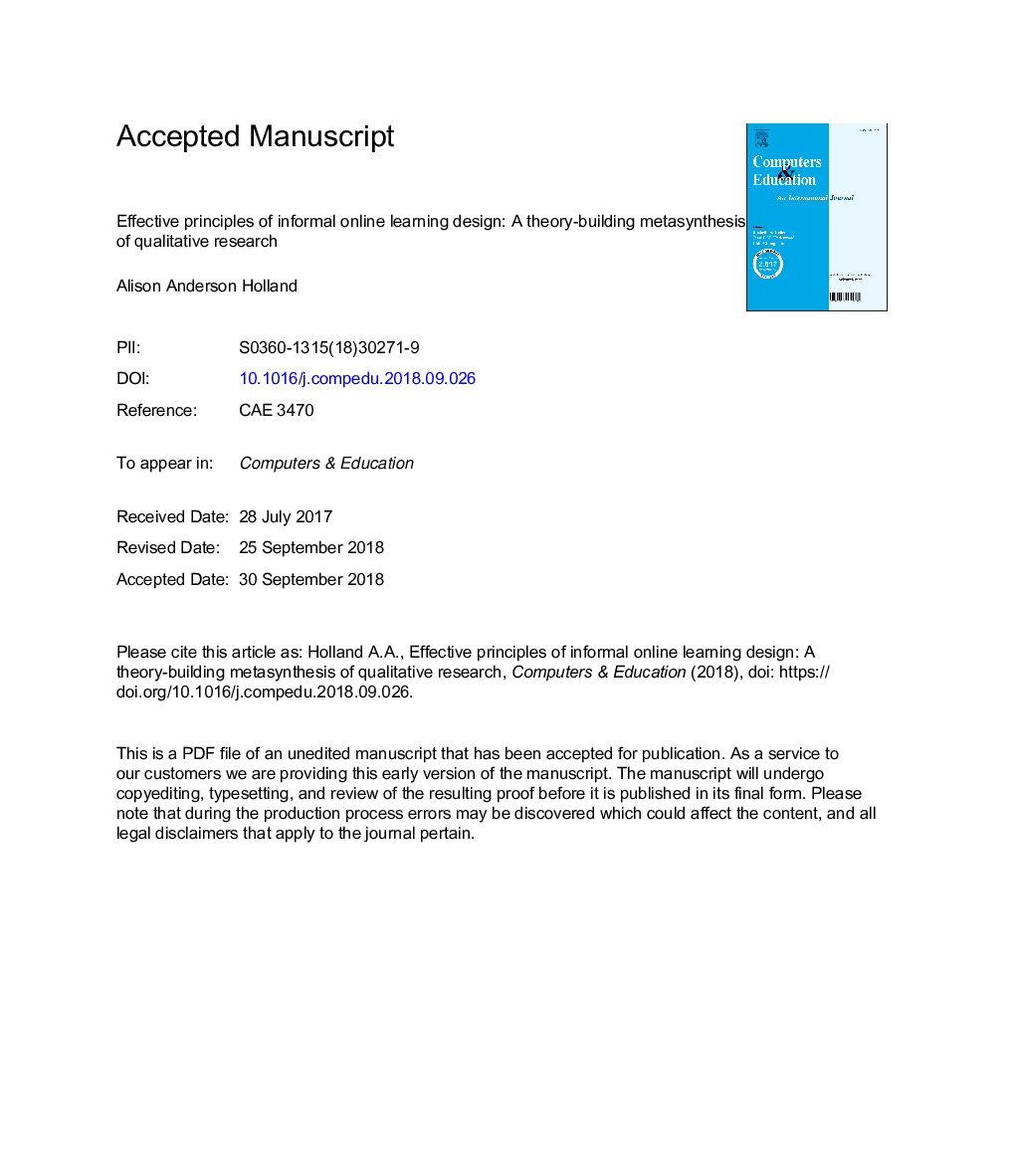| Article ID | Journal | Published Year | Pages | File Type |
|---|---|---|---|---|
| 11024035 | Computers & Education | 2019 | 38 Pages |
Abstract
Informal online learning is the unstructured learning that happens in daily life while people are accessing the internet. Research on the use and design of interactive Web 2.0 platforms for informal learning is minimal, and often platform-specific. This theory-building metasynthesis aims to identify what is known about how informal online learning can be effectively designed outside a formal online course structure. The study reviewed 22 articles that investigated learning that happened primarily online, was self-directed in nature, and had a primarily adult audience. The author brought together the findings of these individual studies to identified two effective principles of informal online learning design that research dissemination organizations can utilize when developing online outreach education programs for adult audiences: (a) interaction opportunities support knowledge construction and learner empowerment; and (b) segmented, titled, and tagged learning objects facilitate personalized learning. The principles identified in this study not only describe what is known about how adults learn informally online, but also provide the common language and goals to frame the interdisciplinary collaboration likely necessary to employ them.
Keywords
Related Topics
Social Sciences and Humanities
Social Sciences
Education
Authors
Alison Anderson Holland,
